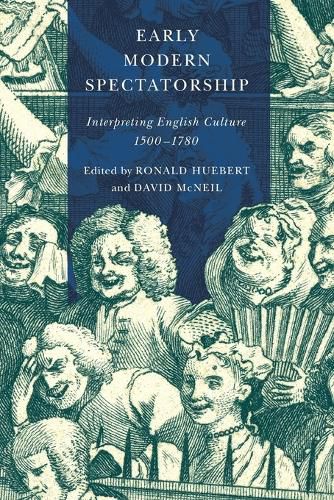Readings Newsletter
Become a Readings Member to make your shopping experience even easier.
Sign in or sign up for free!
You’re not far away from qualifying for FREE standard shipping within Australia
You’ve qualified for FREE standard shipping within Australia
The cart is loading…






This title is printed to order. This book may have been self-published. If so, we cannot guarantee the quality of the content. In the main most books will have gone through the editing process however some may not. We therefore suggest that you be aware of this before ordering this book. If in doubt check either the author or publisher’s details as we are unable to accept any returns unless they are faulty. Please contact us if you have any questions.
What did it mean to be a spectator during the lifetime of Shakespeare or of Aphra Behn? In Early Modern Spectatorship contributors use the idea of spectatorship to reinterpret canonical early modern texts and bring visibility to relatively unknown works.
While many early modern spectacles were designed to influence those who watched, the very presence of spectators and their behaviour could alter the conduct and the meaning of the event itself. In the case of public executions, for example, audiences could both observe and be observed by the executioner and the condemned. Drawing on work in the digital humanities and theories of cultural spectacle, these essays discuss subjects as various as the death of Desdemona in Othello, John Donne’s religious orientation, Ned Ward’s descriptions of London, and Louis Laguerre’s murals painted for the residences of English aristocrats. A lucid exploration of subtle questions, Early Modern Spectatorship identifies, imagines, and describes the spectator’s experience in early modern culture.
$9.00 standard shipping within Australia
FREE standard shipping within Australia for orders over $100.00
Express & International shipping calculated at checkout
This title is printed to order. This book may have been self-published. If so, we cannot guarantee the quality of the content. In the main most books will have gone through the editing process however some may not. We therefore suggest that you be aware of this before ordering this book. If in doubt check either the author or publisher’s details as we are unable to accept any returns unless they are faulty. Please contact us if you have any questions.
What did it mean to be a spectator during the lifetime of Shakespeare or of Aphra Behn? In Early Modern Spectatorship contributors use the idea of spectatorship to reinterpret canonical early modern texts and bring visibility to relatively unknown works.
While many early modern spectacles were designed to influence those who watched, the very presence of spectators and their behaviour could alter the conduct and the meaning of the event itself. In the case of public executions, for example, audiences could both observe and be observed by the executioner and the condemned. Drawing on work in the digital humanities and theories of cultural spectacle, these essays discuss subjects as various as the death of Desdemona in Othello, John Donne’s religious orientation, Ned Ward’s descriptions of London, and Louis Laguerre’s murals painted for the residences of English aristocrats. A lucid exploration of subtle questions, Early Modern Spectatorship identifies, imagines, and describes the spectator’s experience in early modern culture.